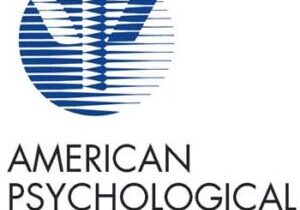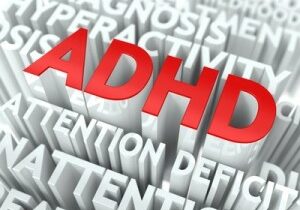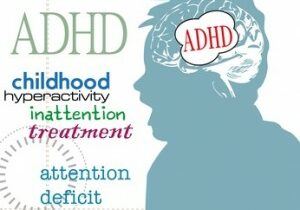“If a child can't learn the way we teach, maybe we should teach the way they learn” -Ignacio Estrada.
Who Needs an Educational Assessment?
A comprehensive psychoeducational evaluation can be a crucial step in understanding and addressing a child's unique learning and behavioral needs. Here are some signs and circumstances in which such an evaluation may be necessary:
Signs Your Child Would Benefit from an Educational Assessment:
- Academic Struggles: Persistent difficulties in specific academic areas, such as reading comprehension, written expression, or math calculations.
- Behavioral Challenges: Ongoing behavioral issues, including impulsivity, inattention, defiance, or emotional outbursts, disrupting learning and classroom dynamics.
- Learning Disabilities: Suspected or previously diagnosed learning disabilities like dyslexia, dyscalculia, or ADHD, which impact a child's ability to grasp and retain information.
- Uneven Development: Significant gaps between a child's cognitive abilities (as assessed through IQ testing) and their academic performance, highlighting potential learning gaps.
- Social or Emotional Concerns: Persistent social difficulties, anxiety, depression, mood swings, or emotional challenges that hinder a child's engagement and participation in school.
- Speech or Language Delays: Delays in speech or language development, affecting communication skills and overall learning.
- Unexplained Underachievement: A child who consistently underperforms academically, despite apparent intellectual potential, warranting an investigation into underlying factors.
- Special Education Needs: A documented requirement for specialized educational services or accommodations due to a suspected learning disability or other significant educational challenges.
Circumstances in Which Your Child May Need a Psycheducational Evaluation:
- Transition to School: Assessing a child's readiness for formal education and identifying any potential early intervention needs.
- Change in Performance: Sudden and unexplained declines in academic performance or behavioral changes that raise concerns about a child's well-being in school.
- Request for Accommodations: When a child's educational progress necessitates accommodations or support services, confirming the need for such assistance through an evaluation is essential.
- Evaluation for Special Education Services: To determine eligibility for special education services, including Individualized Education Programs (IEPs), which provide tailored support for children with disabilities.
- Identification of Strengths: Assessing a child's unique strengths and weaknesses to develop personalized teaching strategies that optimize learning potential and overall success in the educational setting.


What to Expect in a Psychoeducational Evaluation
If you're in South Florida, particularly in the scenic West Broward area, and searching for "psychoeducational testing near me," you're in luck. You can expect an amazing and trusted experience because our team of expert evaluators is dedicated to helping you and your loved ones. A psychoeducational evaluation is a comprehensive assessment conducted by the best professionals in the field. What makes it magic is the insight it provides into a person's unique learning profile, allowing tailored strategies for improvement to come along. During this process, you can anticipate a thorough examination of cognitive abilities, academic skills, emotional well-being, and behavioral factors. So, rest assured, your journey toward a brighter educational future starts now with our experienced team by your side.

- Initial Consultation: The process typically begins with an initial consultation where the evaluator discusses the purpose and goals of the evaluation with the customer or parent. This is an opportunity to address any questions or concerns and establish a clear understanding of what to expect.
- Assessment Battery: A psychoeducational evaluation involves a battery of assessments, which may include cognitive assessments, academic testing, behavioral observations, and emotional assessments. These tests are carefully selected based on the specific concerns and goals identified during the initial consultation.
- Observations and Interviews: In addition to standardized testing, the evaluator may also conduct interviews with the individual being evaluated, as well as teachers, parents, or other relevant individuals. Observations in real-life settings, such as a classroom, may also be part of the process to gather a comprehensive view of the individual's strengths and challenges.
- Comprehensive Report: After all assessments and data collection are complete, the evaluator compiles the information into a comprehensive report. This report typically includes a summary of findings, diagnostic impressions (if applicable), and recommendations for interventions or support services.
- Feedback and Discussion: The customer or parent can expect to have a feedback session with the evaluator to review the findings and recommendations. This is an opportunity to discuss the results, ask questions, and collaboratively develop a plan for addressing any identified areas of concern or improvement.
Overall, a psychoeducational evaluation is a thorough and structured process designed to provide valuable insights into an individual's learning profile and needs, with the ultimate goal of supporting their educational and personal development.
What about PsychoEducational Evaluations For Adults?
Psychoeducational evaluations are not limited to children and can hold significant value for adults as well. These assessments are designed to provide insights into an individual's cognitive, academic, emotional, and behavioral functioning. Here's why psychoeducational evaluations are valuable for adults:
- Identifying Learning Disabilities: Adults who have struggled with learning difficulties throughout their lives may benefit from psychoeducational assessments. These evaluations can help identify learning disabilities such as dyslexia, ADHD, or processing disorders. Understanding these challenges can lead to more targeted interventions and strategies for success in academic or vocational settings.
- Accommodation Requests: Adults in college or the workplace who suspect they may have a learning disability can undergo psychoeducational assessments to qualify for accommodations. These accommodations might include extended time on exams, note-taking support, or assistive technology. Professionals like educators, college students, or individuals seeking career advancement can use these assessments to request necessary accommodations.
- Career Planning: Psychoeducational assessments can provide valuable information about an individual's cognitive abilities, strengths, and weaknesses. This information can guide career choices, helping adults select occupations that align with their abilities and interests. Career counselors and vocational rehabilitation specialists may recommend these assessments to clients seeking career guidance or those in the process of a career transition.
- Emotional and Behavioral Assessment: In addition to academic and cognitive assessments, psychoeducational evaluations can include assessments of emotional and behavioral functioning. These evaluations can be beneficial for adults struggling with mood disorders, anxiety, or attention difficulties. Mental health professionals may use these assessments to inform treatment planning and interventions.
- Accurate Diagnosis: Adults seeking a formal diagnosis for conditions such as ADHD or autism spectrum disorder may undergo psychoeducational assessments. A proper diagnosis can lead to more targeted treatment options and a better understanding of one's unique needs.
- Personal Growth and Development: Some adults pursue psychoeducational assessments as a means of personal growth and self-discovery. These assessments can provide insights into how individuals learn, process information, and cope with challenges, facilitating personal development and self-awareness.









